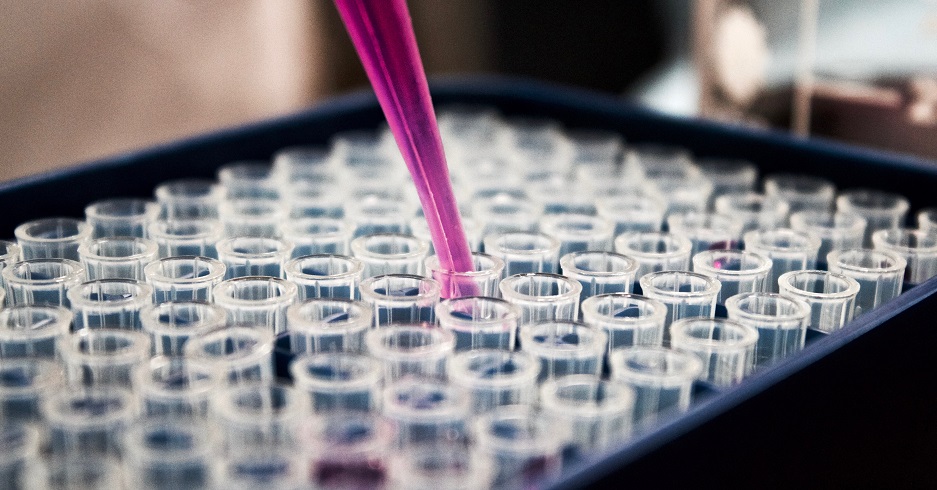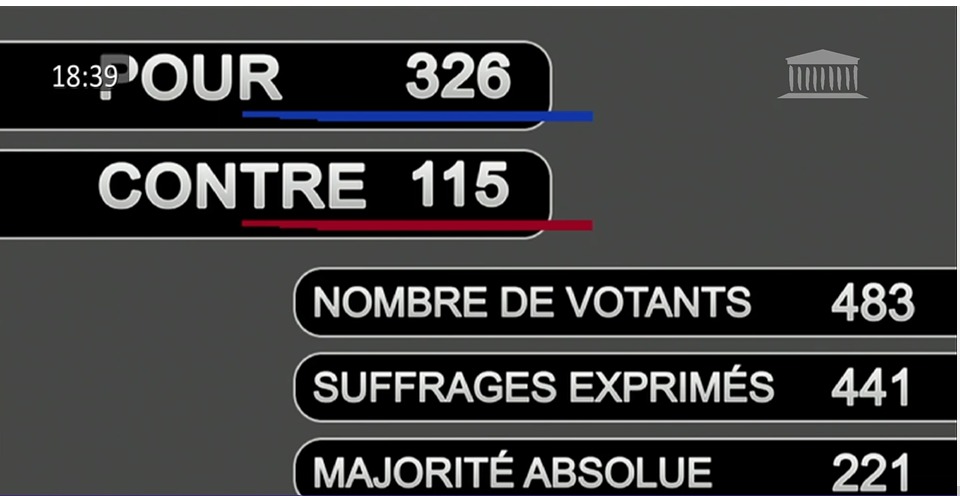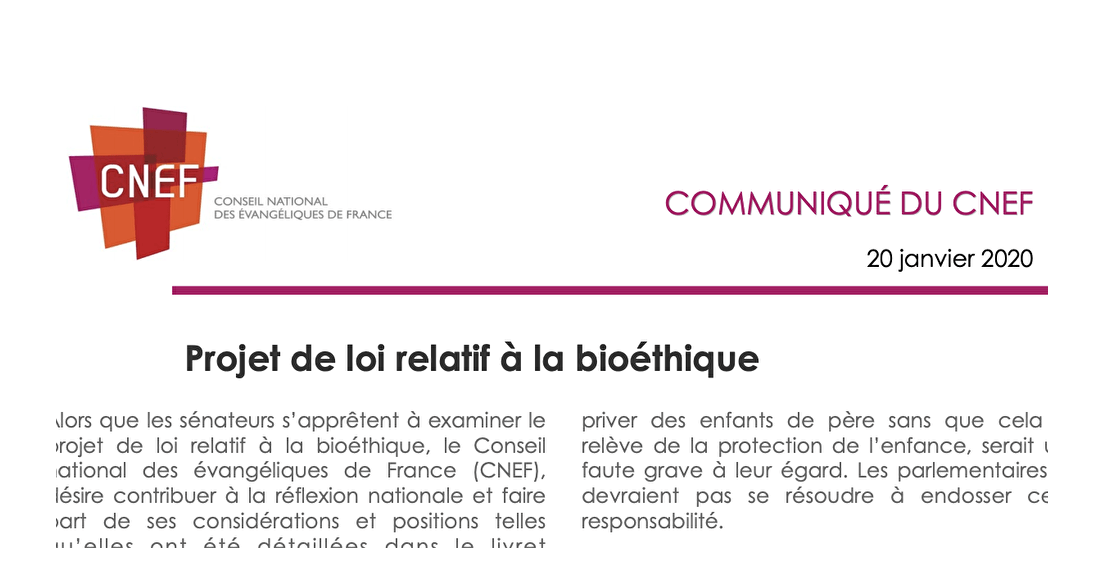France finally approves broad-ranging bioethics law
The final text is passed after two years of debates. French evangelical bioethics experts warned against the “consumerist and individualist drift” of the law and the disregard for children.
France 24, CPDH, Evangeliques.info · PARIS · 01 JULY 2021 · 10:25 CET

The National Assembly (the lower house of the French Parliament) has definitively passed the new bioethics law, a project led by President Emmanuel Macron, which touches on a range of issues.
Approved on 29 June with 326 votes for, 115 against and 42 abstentions, the law was presented in time for the LGBT Pride celebrations.
The French Senate, where the centrist party of Macron has not a majority, had rejected the law three times. The law will be implemented immediately after it is signed by the government.
One of its main points is that it gives single women and lesbian couples access to free fertility treatments, such as in vitro fertilisation (IVF).
This was a demand of LGBT groups since France approved same-sex marriage in 2013.

Final vote of the bioethics law in the National Assembly, 29 June. The law also allows women in their 30s to freeze their oocytes. And it gives children conceived with donor sperm the right to learn about the donor’s identity when they become adults.
Hundreds of amendments have been introduced to the text as parliamentarians have discussed the law for 22 months. Before the parliamentary process, evangelical organisations had submitted their proposals during the period opened to receive feedback from the civil society.
Surrogacy not legalised
The new law will not legalise surrogacy arrangements (when a woman carries and delivers a baby for someone else). Previous versions of the text opened the door to such practice, that is widely rejected by the French population and banned by governments across Western Europe - but allowed in other countries such as Ukraine.
Nonetheless, the law opens the possibility for LGBT couples to recognise the filiation of children born abroad by a surrogacy process.
Human and animal cells
Concerning mixing human and animal cells, the text prohibits “the modification of a human embryo by adding cells from other species” but the reverse will be authorised, namely adding human cells to embryos of animals.
In the area of abortion, the law eliminates de one-week period of reflection before a termination of pregnancy.
The law also improves the legal framework for citizens to give their body for scientific research.
Reaction of French evangelical organisations
Hours before the law was passed, Frank Meyer of the Protestant Committee for Human Dignity (CPDH) told French news website Evangeliques: “The government wants to create right to have a child” that “directly harms the child”.
Meyer lamented that the law communicates the message that people “have the right to have a child, the way they want it, when they want it, and with whom they want it”.

A document of the CNEF analysing the draft law in 2020. In 2020, the National Council of Evangelical Christians (CNEF) also analysed the text, criticising what they saw as an effort to allow “parental projects on demand”. “Children should not be ‘products’ for the satisfaction of individuals”, they said, because “depriving children of fathers without it being a matter of child protection, would be a serious offence against them”.
Evangelical bioethics groups have joined demonstrations in Paris and other cities demanding changes to the draft law.
⚡️ Opération #Marianne : Monsieur le président, votre position est déterminante pour notre avenir et celui des générations futures. La filiation humaine et la non-marchandisation humaine sont sur la sellette. Vous devez retirer ce #PJLBioéthique. #PMAsansPère #GPA pic.twitter.com/9qwwNj28vj— La Manif Pour Tous (@LaManifPourTous) June 29, 2021
Published in: Evangelical Focus - europe - France finally approves broad-ranging bioethics law
